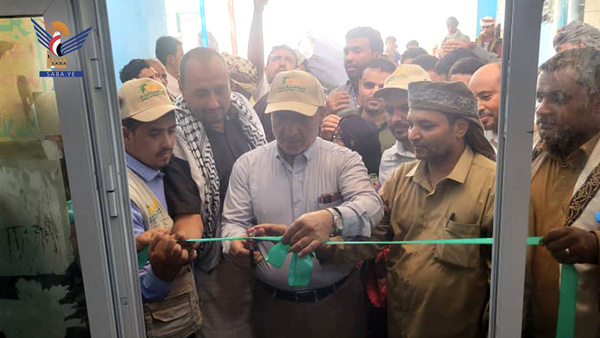
Hodeida - Saba:
Surgical operations officially began on Sunday at al-Jarrahi Rural Hospital in Hodeida governorate as part of the 67th Free Medical Eye Surgery Camp, implemented by the Healthcare Association for Affected Communities, funded by the General Authority of Zakat, and coordinated with the Ministry of Health and Environment.
The six-day medical camp aims to perform 500 surgeries, including cataract removals, pterygium excisions, and eyelid cyst removals. It will also offer free consultations and medical examinations to citizens from the most vulnerable segments of society in the district.
During the launch, Hassan Tamah, Head of the Health Committee at Zakat Authority, stated that the surgeries fall within the framework of expanding the Authority’s health projects to serve the community and have a tangible impact on improving the lives of low-income patients.
For his part, Mohammed Haza’a, Director of the Zakat Authority’s branch in the governorate, noted that the camp reflects a serious commitment to channeling Zakat funds into their rightful purposes, particularly in the health sector, which addresses a pressing need in peripheral districts.
He added that the camp is part of the Authority’s broader humanitarian programs and represents a significant step in supporting free healthcare services for underprivileged citizens, describing it as a humanitarian intervention that directly touches the suffering of vulnerable residents in al-Jarrahi district.
Meanwhile, Dr. Mohammed Jarallah, Director of al-Jarrahi Rural Hospital, pointed out that the medical team had begun conducting surgeries for the targeted patients. He emphasized the importance of coordination among the implementing parties to ensure the camp runs according to plan and achieves its health and humanitarian goals.
The inauguration was attended by District Director Taha Ma’iti, Head of the Disbursement Department at Zakat Office Ahmad Mahdi, Health Official at the Zakat Office Wazir Mansour, along with several local and health officials, the specialized medical team, and community leaders from the district.
Surgical operations officially began on Sunday at al-Jarrahi Rural Hospital in Hodeida governorate as part of the 67th Free Medical Eye Surgery Camp, implemented by the Healthcare Association for Affected Communities, funded by the General Authority of Zakat, and coordinated with the Ministry of Health and Environment.
The six-day medical camp aims to perform 500 surgeries, including cataract removals, pterygium excisions, and eyelid cyst removals. It will also offer free consultations and medical examinations to citizens from the most vulnerable segments of society in the district.
During the launch, Hassan Tamah, Head of the Health Committee at Zakat Authority, stated that the surgeries fall within the framework of expanding the Authority’s health projects to serve the community and have a tangible impact on improving the lives of low-income patients.
For his part, Mohammed Haza’a, Director of the Zakat Authority’s branch in the governorate, noted that the camp reflects a serious commitment to channeling Zakat funds into their rightful purposes, particularly in the health sector, which addresses a pressing need in peripheral districts.
He added that the camp is part of the Authority’s broader humanitarian programs and represents a significant step in supporting free healthcare services for underprivileged citizens, describing it as a humanitarian intervention that directly touches the suffering of vulnerable residents in al-Jarrahi district.
Meanwhile, Dr. Mohammed Jarallah, Director of al-Jarrahi Rural Hospital, pointed out that the medical team had begun conducting surgeries for the targeted patients. He emphasized the importance of coordination among the implementing parties to ensure the camp runs according to plan and achieves its health and humanitarian goals.
The inauguration was attended by District Director Taha Ma’iti, Head of the Disbursement Department at Zakat Office Ahmad Mahdi, Health Official at the Zakat Office Wazir Mansour, along with several local and health officials, the specialized medical team, and community leaders from the district.